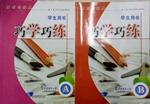
Joe Biggs was a butcher. His shop was in a village in the beautiful south of England, and he 31 in it for many years while his father was there. Then when his father reached the age of 65, he stopped working in the shop, and Joe was alone in it, so he had to work 32 .
Joe worked five and a half days a week. His shop 33 at one o’clock on Thursday, and it was closed the whole of Sunday. Saturdays were the 34 days.
Most of Joe’s 35 came to his shop from the nearest town, but sometimes he got up earlier than usual in the morning and 36 into the city to choose meat. It was 37 there.
Joe had a big 38 in his shop, but he tried not to buy too 39 meat at a time, and to 40 it before he bought more.
One 41 a woman came into the shop at five minutes to one. “Sorry I’m late,” she said, “but some friends have just telephoned to say that they are coming to 42 tonight, and I need more 43 .”
Joe only had one piece of meat in the shop. He had sold all the others 44 in the day. He took the piece 45 and said to the woman, “This is 6.5 pounds.”
“That piece is too 46 .” the woman said. “Haven’t you got anything bigger?”
Joe went 47 the room behind his shop, opened the refrigerator, put the piece of meat into it, took it out 48 and shut the door of the refrigerator 49 , then he brought the piece of meat back to the woman and said, “This piece is bigger and more expensive. It’s 8.75 pounds.”
“Good,” the woman answered with a smile, “give me 50 of them, please.”
1.A. lived B. studied C. worked D. played.
2.A. more B. harder C. later D. again
3.A. shut B. started C. opened D. served
4.A. hardest B. easiest C. quietest D. busiest
5.A. customers B. meat C. buyers D. friends
6.A. walked B. flew C. drove D. ran
7.A. easier B. fresher C. nearer D. cheaper
8.A. refrigerator B. room C. kitchen D. cupboard
9.A. much B. expensive C. fresh D. adequate
10.A. eat B. cook C. sell D. freeze
11.A. Thursday B. Sunday C. Monday D. Saturday
12.A. party B. dinner C. lunch D. dance
13.A. food B. vegetable C. meat D. fruit
14.A. later B. earlier C. quicker D. cheaper
15.A. in B. up C. away D. out
16.A. small B. large C. cheap D. bad
17.A. outside B. from C. into D. through
18.A. still B. again C. even D. back
19.A. carefully B. quickly C. lightly D. heavily
20.A. both B. none C. each D. all
1.C
2.B
3.A
4.D
5.B
6.C
7.D
8.A
9.A
10.C
11.A
12.B
13.C
14.B
15.D
16.A
17.C
18.B
19.D
20.A
【解析】
试题分析:本文一篇记叙文。文章讲述了Joe在肉店买肉的故事,文章结尾发人深省。
1.C考查动词词义辨析及语境理解。此处live生活,居住;study学习; work工作 ; play玩耍。Joe Biggs是一名屠夫,他和父亲在肉店一起工作(work)了想当年。根据上下文语境选C。
2.B考查副词词义辨析。此处more更多;harder 更加努力;later后来;again再一次。父亲65岁后就不在肉店工作了,就只剩下Joe一个人,所以他必须更加努力(harder)地工作。故选B。
3.A考查动词词义辨析及语境理解。此处shut 关门; starte开始;open开门;serve服务。根据文意可知,他一周工作5天半,周日关门,周六最忙,所以只能是周四1点钟开始关门,半天不营业。故选A。
4.D考查形容词词义辨析。此处hardest最难;easiest 最简单;quietest最安静;busiest最繁忙。根据文意可知,周日不营业,所以周六最繁忙(busiest)。故选D。
5.B考查名词词义辨析。此处customers客户; meat肉;buyers 买者; friends朋友。Joe肉店里的肉(meat)是从最近的城镇买来的。故选A。
6.C考查动词词义辨析及语境理解。此处walk步行;flew 乘飞机;drove开车;. ran跑。根据文意,他步行、跑着和乘飞机买肉,都不符合逻辑,所以开车去买肉。故选C。
7.D考查形容词词义辨析。此处easier较简单的;fresher较新鲜的;nearer较近的; cheaper较便宜的。根据文意,他早上很早就开车进城买肉,就是为了买便宜的。本题易误选B,合格的肉都应该是新鲜的,所以B错误。
8.A考查名词词义辨析。此处refrigerator冰箱;room 房间; kitchen厨房;cupboard橱柜。根据文意可知,他的肉店应该有一个大的冰箱,以防肉变坏。故选A。
9.A考查副词词义辨析。此处much 多; expensive 贵;fresh新鲜;adequate充裕的。根据文意可知,他有一个大的冰箱,所以他一次不买太多(too much)的肉,卖完之后再买新肉。故选A。
10.C考查动词词义辨析。此处eat 吃;cook 烹调;sell卖;freeze冷冻。根据文意可知,他有一个大的冰箱,所以他一次不买太多的肉,卖(sell)完之后再买新肉。故选C。
11.A考查语境理解。根据文意可知,周四一点关门,正好一位妇女在一点差五分的时候来买肉,可以推知是在星期四。因为星期四一点关门。故选A。
12.B考查名词词义辨析。此处party聚会;dinner餐;lunch午餐; dance跳舞。有几个朋友打电话说,他们今晚要来吃饭,我需要更多的肉。Come to dinner意为:来吃饭。
13.C考查名词词义辨析。此处food 食物;vegetable 蔬菜;meat 肉;fruit水果。根据文意可知,有几个朋友打电话说,他们今晚要来吃饭,我需要更多的肉。肉店里自然卖的是肉,故选C。
14.B考查副词的用法。此处later 后来;earlier早些时候;quicker更快的;cheaper更便宜的。Joe只有一块肉了,这天的早些时候把其他的肉都买了。根据句意选B。
15.D考查副词及短语的用法。此处take out 意为:拿出。他把一块肉拿出来。故选D。
16.A考查形容词的用法。此处small小的;large大的;cheap便宜的;bad坏的。根据后文的Haven’t you got anything bigger?可知,用small,这是一对反义词。
17.C考查介词的用法及语境理解。此处outside外面;from 从……,由……; into进入; through通过。他从肉店后面的房间走进来,打开冰箱。
18.B考查副词词义辨析。此处still 仍然;again再一次;even即使;back回来。他再一次(again)把那块肉拿出来。故选B。
19.D考查副词词义辨析。此处carefully仔细地;quickly快速地;lightly轻轻地;heavily 重重地。他把冰箱的门重重地关上,让外面的那位妇女听到声音,意思是说,他拿了一块新的。结果那位妇女两块都要。
20.A考查代词的用法及语境理解。此处both两个都;none一个没有;each每个;all所有的。他把冰箱的门重重地关上,让外面的那位妇女听到声音,意思是说,他拿了一块新的。结果那位妇女两块(both)都要。故选A。
考点:考查记叙文的完形填空。


 巧学巧练系列答案
巧学巧练系列答案科目:高中英语 来源:课堂三级讲练高中英语必修① 题型:054
完形填空
Joe Biggs was a butcher(肉商) in a village. He worked in it for many years while his father was there. Then when his father 1 the age of 65, he stopped working. Joe was alone in it, so he had to work 2 .
Joe worked five and a half days a week. His shop 3 at one o'clock on Thursday, and it was shut 4 of Sunday. Saturdays were the 5 day.
Most of Joe's 6 came to his shop from the nearest town. However sometimes he got up earlier 7 and drove into the city to choose meat. It was cheaper there.
Joe had a big refrigerator in his shop, but he tried not to buy too much meat 8 , and to sell it 9 he bought more.
One day a woman came into the shop at five minutes to one. “I'm 10 , I'm late,” she said, “ 11 some people have just phoned to say that they are going to 12 tonight, and I need some meet.” Joe only had 13 of good meat. He had sold 14 earlier in the day. He took the piece out and said, “This is 6.5 pounds.”
“That piece is too 15 ,”the woman said, “Haven't you got anything bigger?” Joe went into the room behind his shop, opened the refrigerator, 16 the piece of meat into it, took 17 out again and shut the door of the refrigerator 18 . Then he brought the piece back to the woman and said, “This piece is bigger and 19 . It's 8.75 pounds.”
“Good,” the woman said with a smile. “Give me 20 of them.”
1.
[ ]
2.
[ ]
3.
[ ]
4.
[ ]
5.
[ ]
6.
[ ]
7.
[ ]
8.
[ ]
9.
[ ]
10.
[ ]
11.
[ ]
12.
[ ]
13.
[ ]
14.
[ ]
15.
[ ]
16.
[ ]
17.
[ ]
18.
[ ]
19.
[ ]
20.
[ ]
查看答案和解析>>
科目:高中英语 来源: 题型:完形填空
查看答案和解析>>
湖北省互联网违法和不良信息举报平台 | 网上有害信息举报专区 | 电信诈骗举报专区 | 涉历史虚无主义有害信息举报专区 | 涉企侵权举报专区
违法和不良信息举报电话:027-86699610 举报邮箱:58377363@163.com